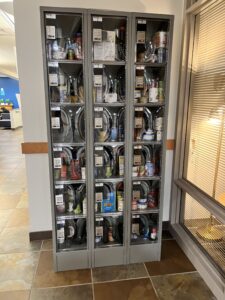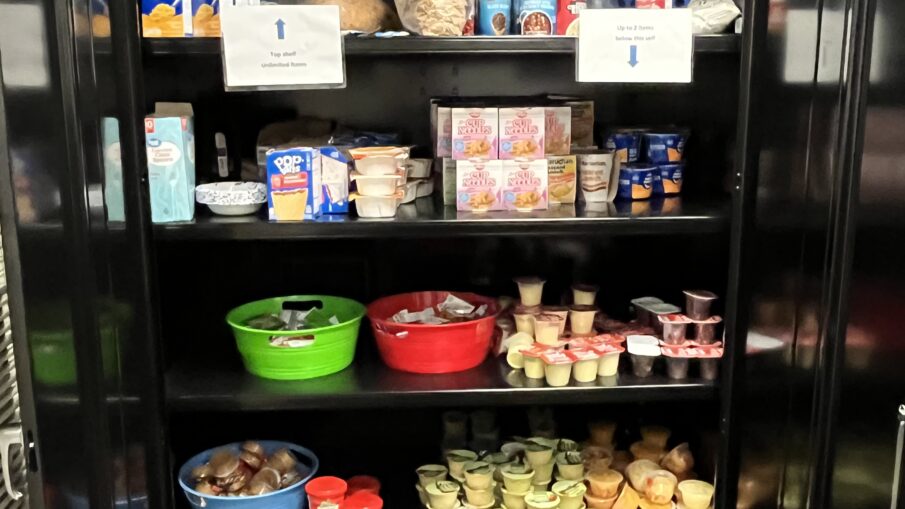Food insecurity can affect anyone, but for the Frederick Community College student, faculty and staff, there are people willing to help.
More than 34 million people struggle with food insecurity, according to the USDA. In Maryland, that means more than 600,000 people who struggle to find regular meals.
In the FCC Student Center, the student leadership and engagement office room at H-101 offers a food pantry, which is a cabinet full of free food for all FCC students and employees. Although it is not open to the general public, anyone from FCC can take up to two items from the pantry a day. There is always a large range of donated snacks to pick from. The only requirement is to scan the QR code on the door and fill out two questions.
Kristi Mills, assistant director of FCC’s student leadership and engagement, is one of the people behind the FCC food pantry.
“Our goal is to help students so they’re not hungry; you can’t concentrate and work on schoolwork and concentrate in your class if you’re hungry,” she said.

Along with the pantry with easy and quick snacks, there is also the food locker outside room H-101. The food locker has nonperishable food that can be taken home and cooked, like rice, pasta and pancake mix. But the food locker, unlike the food pantry, also has toiletries such as laundry detergent, shampoo, toilet paper and feminine products. There is a twice-a-month limit for food locker requests, but there is no limit to taking hygiene products.
“We don’t track who comes in, we track the number of people that come in, and that’s what that QR code helps,” Mills said.
She said tracking visits helps FCC apply for grants to help provide for the food pantry and locker. There have been over 500 visits to the food pantry each month, with 563 in September, according to Mills. That is 200 more visits than the 300 visits recorded pre-quarantine.
Mills said if some students or employees need any extra help, there is always a list of resources to help the food insecure in the counseling and wellness office.
“We don’t want people to be embarrassed to come into our office if they need something to eat. We don’t question students,” she said.

